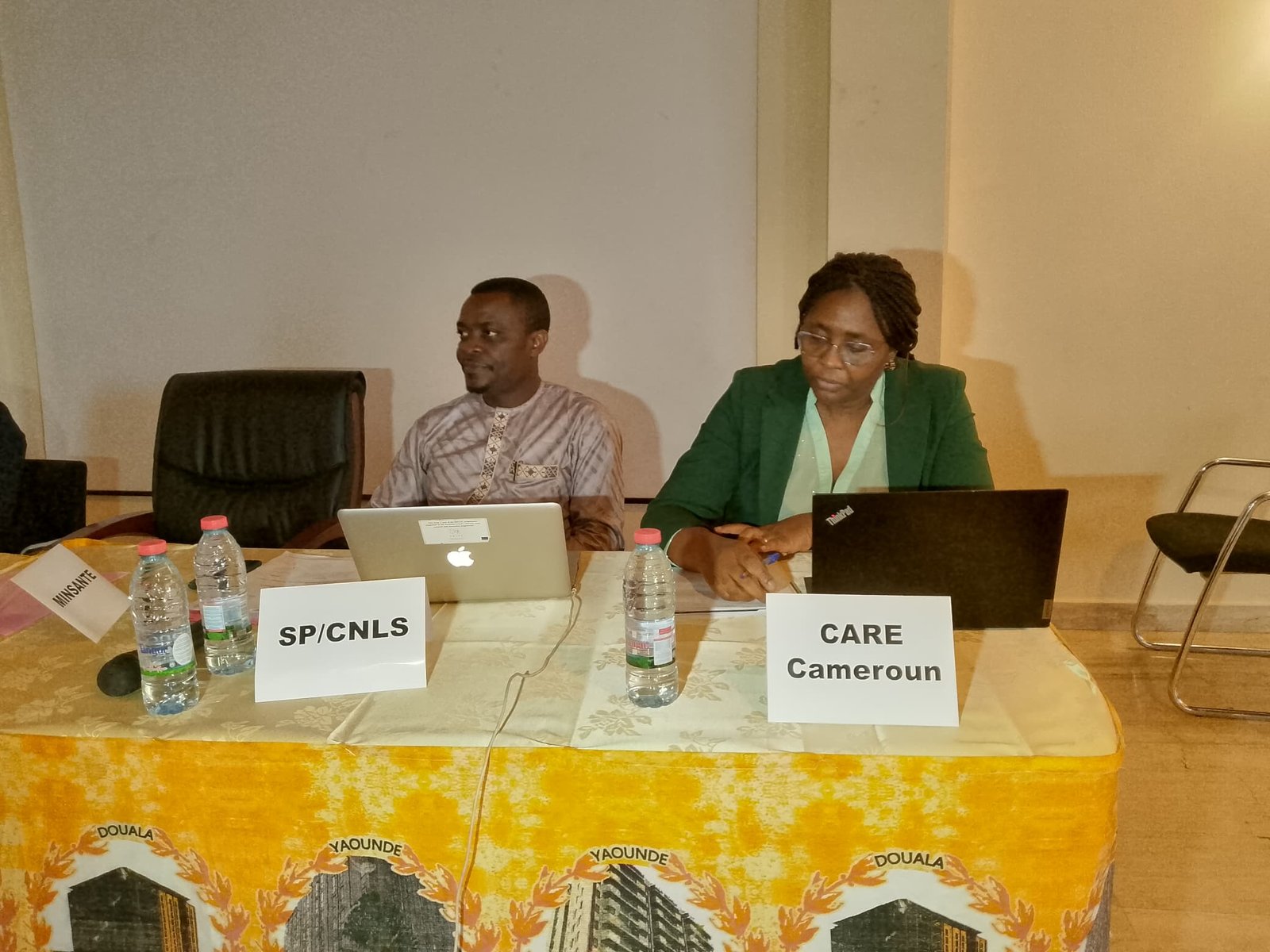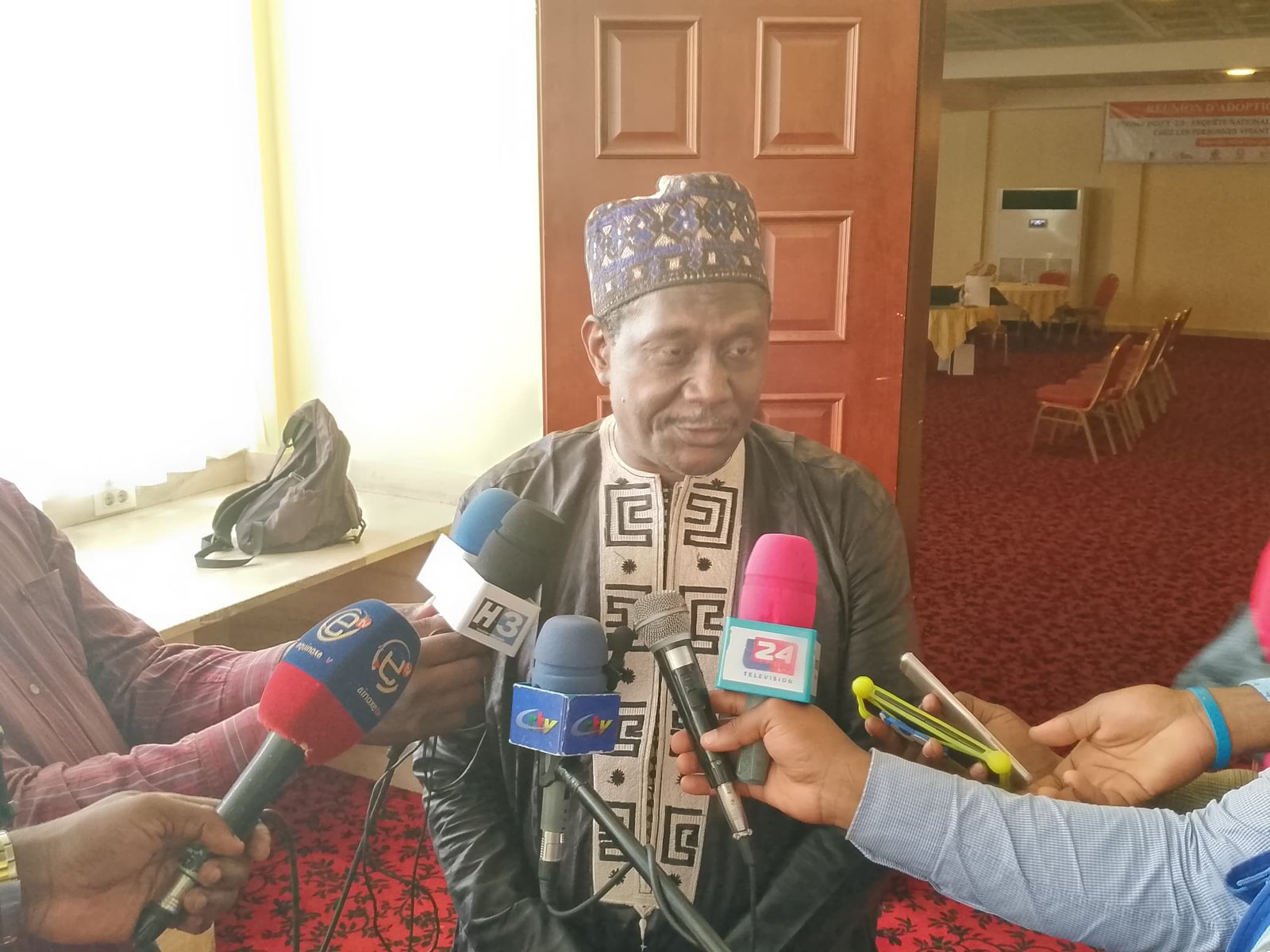The survey carried out by a team of consultants recruited by Care Cameroon in collaboration with RéCAP+ was presented in a strategic meeting held on July 18, 2024, in Yaounde.

During the meeting held on July 18, 2024, aimed at presenting studies carried out for the 2023-Stigma Index 2.0 National Survey on People Living with HIV in Cameroon, several key statistics were disclosed.
The objective of the PLHIV Stigma Index 2.0 Survey is to estimate the prevalence and nature of HIV-related stigma and discrimination against people living with HIV(PLHIV) to develop an evidence base and a broader understanding to inform HIV response in Cameroon.
Tackling Stigmatization & Discrimination
In his address, Jean Jules Kamgue, Executive Director of the Cameroon Network of Associations of People Living with HIV/ AIDS (RéCAP+) saluted the support of the government through the Ministry of Public Health, Regional Delegations, and Community-Based Organizations for their contributive efforts in this survey.

Mr. Kamgue said the studies which were carried out in all 10 regions of Cameroon have enrolled 2439 people living with HIV out of the minimum size of 2400 that were targeted, giving an expected rate of 101.6%. At the end, only 2104 participants were retained for interviews following some eligibility criteria. Amongst the people interviewed 62.6% of the participants were of female sex while 37.4% of male sex.
He went further to outline that, 24% of these participants were Key Populations(KPs), and the majority, that is 55.4% were Sex workers.
According to the results highlighted in this crucial study as he said, stigmatization is a predominant hindrance that greatly affects the eradication of HIV/AIDS.

The Executive Director of RéCAP+, Jean Jules Kamgue, seized this meeting to advocate for concerted actions that will help strangle the scourge of stigmatization and discrimination in our communities to achieve the expected 95-95-95 targets by 2030.
Chairing the meeting on behalf of the Minister of Public Health, Permanent Secretary of the National AIDS Control Committee (NACC) said in 2022, the number of people living with HIV in Cameroon was estimated to be 480.228. Today the number of new cases is estimated to be 9.900 which shows a drastic dropout though there are still some challenges to uplift.
Dr. Fokam Joseph said despite calls to tackle stigmatization and discrimination which are relevant to the achievement of 2030 targets, there is also the need to fight the upsurge of new infections which are increasing among key populations in Cameroon.

NACC’s Permanent Secretary in his keynote address also outlined the legal protection framework that Cameroon instituted, which is a move to protect all human beings. He said the Cameroonian labour code prohibits all forms of discrimination at work, at school, and in enterprises as well.
Curbing HIV treatment barriers
Taking the floor to unveil key findings of the national survey, Dr. Mfochivé Njindam Iliassou, international consultant and principal investigator of this study said stigma remains one of the main barriers preventing PLHIV from accessing health care.
“HIV-related stigma and discrimination lead to poor mental health, low uptake of services, and low adherence to antiretroviral(ARV) drugs. Stigma is more pronounced among healthcare workers, although there is self-stigma on the part of PLHIV. Indeed, the 2017 pilot survey-PLVIH Index 2.0 revealed that 14.75% of PLHIV chose not to seek health care services because of their HIV status.”

Dr. Mfochivé Njindam mentioned the fact that 17.2% of the study participants reported they had already suspended or stopped their antiretroviral therapy out of fear that their partner, family, or friends would find out about their HIV status.
Also, it was disclosed that many KPs reported avoiding visiting health facilities to receive health care services because of their HIV status (1.6%), gender identity (0.4%), sexual orientation (3.4%), or sex workers (13.4%).

The survey states that: “Even after living with HIV for two years, study participants reported avoiding clinics or health centers when they needed them (8.2%). These participants were also the most frequent to report mental health-related problems (8.6%).”
Leaders and representatives of Community-Based Organizations present at this strategic meeting unanimously called for the government to intensify the fight against HIV/AIDS with their support, on stigmatization and discrimination as the two main cancerous scourges plaguing the eradication of this pandemic.
According to the UNAIDS 2018 Annual Report, Cameroon is the second country most affected by HIV infection in the West and Central Africa Region. Overall, HIV prevalence among people aged 15-49 years has declined progressively: 5.4% in 2004, 4.3% in 2011, and 2.7% in 2018. It is concentrated in certain specific groups such as among sex workers (SW 24.3%) and Men having sex with Men (20.6%).
The fight against HIV has been centered around a national vision, which is to put an end to AIDS as a threat to public health by 2030, by reducing new infections, deaths, and stigma associated with HIV.
The country is on track to achieve the global 95-95-95 target that is: 95% of people with HIV know their status, 95% of those who know their status are on treatment, and 95% of those on antiretroviral have a suppressed viral load.
About the Stigma Index
The stigma index is a joint initiative of a partnership between the Global Network of People Living with HIV(GNP+), the International Community of Women Living with HIV(ICW), the International Planned Parenthood Federation (IPPF), and the Joint United Nations Programme on HIV/AIDS (UNAIDS).
As outlined in the Stigma Index, this survey is an evidence-gathering process for advocacy and its main programme component focuses on community-led research to produce quality data. The overall programme goes beyond research and includes community mobilization, capacity development, and partnership building for targeted advocacy.
This survey stands as the most extensive and reliable tool for measuring the stigma and discrimination experienced by PLHIV, providing important evidence that can contribute to the establishment of adequate policies and laws for creating a stigma and discrimination-free environment for PLHIV.
Elise Kenimbeni




